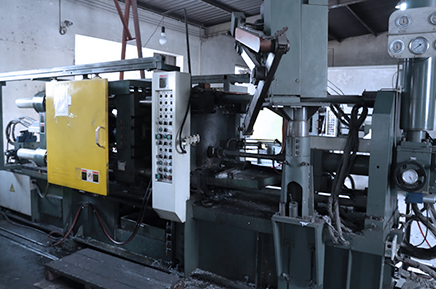SilverFall is your single source supplier for precision machined aluminum and zinc die casting components, offering integrated services including in-house part design assistance, and rapid prototyping to test form, fit, and function, optimize manufacturability and drive down costs. In addition, we offer full tool design and build, perform all types of secondary operations and provide all finishes. And, except for the first tool, all other back-up tools will be free of charge during the project
We have 160T, 280T, 400T cold chamber and 88 tons hot chamber machines with automatic landlers and sprayers to ensure cost effective production methods. We cast in aluminum alloys of B380 - A380, 360 and ADC-12 and in zinc alloys Zamak #3 and #5.


Aluminum die casting alloys are light in weight while possessing high dimensional stability for complex shapes and thin walls. Aluminum has good corrosion resistance and mechanical properties, high thermal and electrical conductivity, as well as strength at high temperatures.
The cold-chamber die casting machines are used to produce the aluminum die casting parts. In the cold-chamber process, metal is transferred by ladle, manually or automatically, to the shot sleeve. Actuation of the injection piston forces the metal into the die—this is a single shot operation. This procedure minimizes the contact time between the hot metal and the injector components, which helps to extend their operating life.


Zinc die casting alloys offer a broad range of excellent physical and mechanical properties.
Zinc alloy is the easiest alloy to cast; it offers high ductility, high impact strength with lower melting temperature and long die life.
We usually use the hot chamber machine to produce the zinc alloy die casting parts. It contains the melting pot, while the cold chamber melt pot is separate and the molten metal has to be ladled into the shot sleeve. With the internal mechanism, it makes the hot chamber the faster of the two processes. Other advantages of the hot chamber process include reduced porosity and longer die life from utilizing alloys that do not erode or dissolve the machine when put under heat or high pressure.